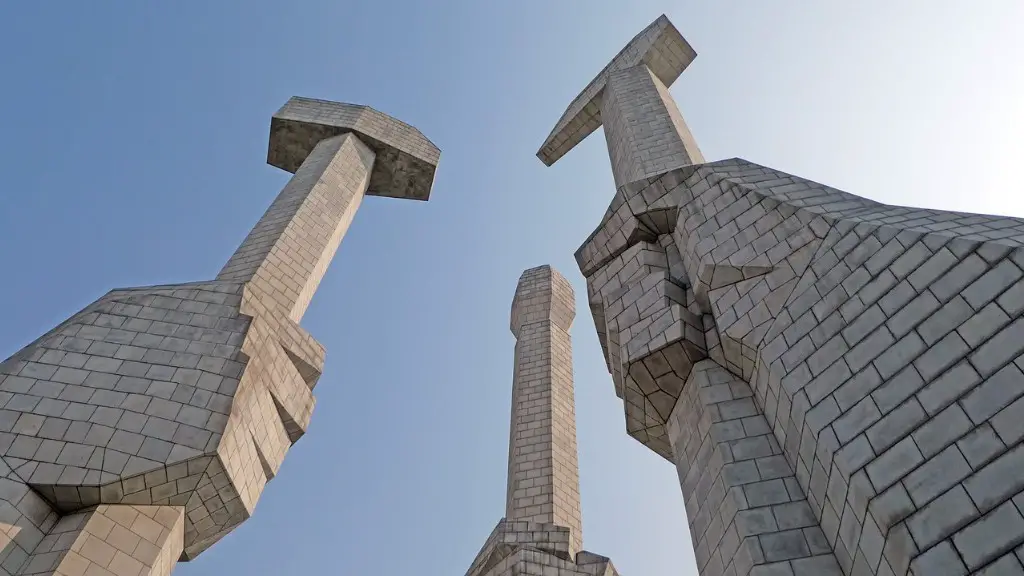Why Does North Korea Have Food Shortages?
North Korea’s food shortages are a major global issue, and have been for decades. The country has had food scarcity since the mid-1990s, when the devastating famine known as the Arduous March began. Although it is not clear why food insecurity has persisted for so long in North Korea, many experts believe that a number of factors are to blame.
One reason for the continued food shortages is the economic policies of North Korea, which have led to rising prices, high debt levels, and a weakening of the nation’s currency. North Korea’s economic policies feature centrally planned pricing, which has been linked to the country’s food insecurity. The pricing system is unable to meet the needs of a country with a large population, leading to shortages and rising prices.
In addition to the economic policies, North Korea’s actions during the Cold War had a major impact on the country’s food security. During the Cold War, North Korea was heavily dependent on aid from the Soviet Union, and when the Soviet Union withdrew its support, North Korea was left without a major source of food. This was likely a major factor in the Arduous March famine.
Furthermore, there are two other possible causes of food shortages in North Korea: environmental factors and agricultural practices. Environmental factors, like floods and droughts, can have a huge impact on the country’s food production, leading to food insecurity. Additionally, North Korea’s agricultural practices are seen as inadequate, leading to food shortages and malnutrition.
Finally, a major factor behind the food insecurity in North Korea is the nation’s isolation from the world. North Korea’s diplomatic relations are strained with other countries, meaning that it is difficult for the country to facilitate the trade links it needs in order to obtain food. This isolation has been a persistent contributing factor to the ongoing food shortages.
Political Struggles
The political struggles of North Korea have also hindered the country’s ability to overcome food shortages. The government’s dedication to its military causes has caused it to neglect other more pressing issues in the nation, including the food crisis. Whereas countries like South Korea have invested money in social programs and infrastructure, North Korea has chosen instead to focus on its military aspirations.
Additionally, the government has also imposed heavy restrictions on freedom of movement, severely limiting the ability for citizens to flee to regions that are not suffering from food insecurity. This lack of mobility has further contributed to the nation’s food insecurity.
The government’s decision to maintain domestic control of the distribution of food has been seen as a major contributor to North Korea’s food shortages. It is estimated that up to 40 percent of the food grown in North Korea is diverted to the military and other privileged classes, leaving regular citizens with inadequate amounts of food.
Sanctions
Another significant factor behind North Korea’s food shortages is the international sanctions that have been imposed on the country. The United Nations, along with other countries, have placed a range of economic sanctions on North Korea in response to the country’s nuclear weapons program. These sanctions have caused difficulties in obtaining food from abroad, exacerbating the already dire food situation in the nation.
Furthermore, the international sanctions have led to a slowdown in the country’s economic growth, as the nation’s financial system has been crippled by the sanctions. This has had a crushing effect on North Korea’s ability to produce its own food, leading to even greater food insecurity.
The persistent food insecurity in North Korea has had a clear impact on the health of the population. Malnutrition is a major issue in the country, and it is estimated that up to a quarter of children aged under 5 are stunted or underweight. This has had a significant impact on the nation’s health and welfare, and highlights the severity of the food crisis in North Korea.
International Assistance
In response to North Korea’s food crisis, international aid organizations have provided assistance to the country, by donating food, medicine, and supplies. These donations have helped to alleviate the suffering of the North Korean people, although it is clear that much more needs to be done.
Despite the international assistance, it is clear that North Korea needs to make changes to its own policies in order to secure its food security. If the country takes measures to improve its economic policies and agricultural practices, as well as invest more in the health and welfare of its people, then it may be able to overcome its long-standing food crisis.
Corrupt System
North Korea’s food insecurity is further complicated by its oppressive political system, which is seen as highly corrupt and unreliable. Many experts argue that the government is incapable of delivering real economic reform and social progress, and instead serves as a tool of control for the ruling elite. This means that the country is less likely to be able to address the root causes of its food insecurity, as it is unable to introduce reforms to the economy and policies that could improve the situation.
Citizens of North Korea also lack the freedom to challenge the government and advocate for the changes they would like to see. Without the freedom to speak out, many citizens are unable to make their concerns known, further complicating the food crisis in North Korea.
Military Policies
The North Korean government’s commitment to military actions has been identified as a major contributor to the nation’s food insecurity. As the government continues to prioritize its military ambitions, it has left little resources for social programs, health care, and infrastructure, all of which would help to alleviate the food crisis. Furthermore, the funds allocated for military purposes have been misused and diverted to the already wealthy elite, leaving regular citizens with the burden of food insecurity.
Furthermore, North Korea’s aggressive military policies towards South Korea and other neighboring countries have caused deep animosity and have led to an international climate of tension. This has made it difficult for the country to engage in international trade in order to acquire food, further contributing to the nation’s food shortages.
Humanitarian Actions
Given the severity of North Korea’s food crisis, it is essential that meaningful humanitarian actions are taken to address the issue. International aid organizations must continue their work to help alleviate the suffering of the North Korean people and ensure that they do not remain in a state of food insecurity.
In addition, citizens of North Korea must be given the right to speak out and advocate for the changes they would like to see. Only when the people of North Korea are given the freedom to express themselves, can they truly make their voices heard and find a solution to the food crisis.
Finally, the international community must continue to put pressure on the North Korean government to take concrete steps to address the food crisis in the country. Only through the concerted action of governments, organizations, and citizens, can North Korea’s food crisis truly be resolved.

